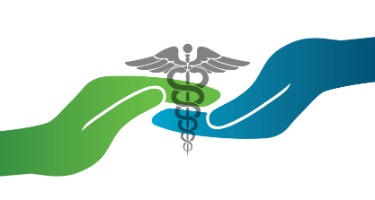By: John D. Balaguer and Christine Kane
The Delaware Supreme Court’s recent opinion in Stayton v. Delaware Health Corporation et al. is good news for tort defendants and liability insurers. The decision mandates significant cuts in medical expenses that tort plaintiffs are permitted to claim in Delaware when Medicare is paying the bills.
In a case of first impression in the State, the High Court held that the collateral source rule, which permits a tort plaintiff to recover medical expenses even when the expenses are paid by a third party, such as private insurance, Medicare or Medicaid, does not apply to Medicare write-offs. The Supreme Court’s decision upheld a trial court ruling from September 2014, "Delaware Court Narrows Collateral Source Rule to End Recovery for Phantom Medical Expenses," and signals a potential shift in Delaware toward more conservative legal rulings on tort issues.
Before Stayton, the collateral source rule permitted plaintiffs in Delaware and in many other states, quite unfairly from a defense perspective, to recover the full amount of medical bills incurred despite the fact that the amount actually paid by Medicare on the bills was a fraction, often a very small fraction, of the original total, with the remaining balance written-off by providers. Therefore, not only were plaintiffs compensated for medical bills they never paid, but also for bills never paid by anyone.
The facts in Stayton underscored the absurdity of this long-standing practice. The plaintiff, a Medicare recipient, suffered severe burns when, left unattended in a nursing home, she set herself ablaze while lighting a cigarette. In her suit against the nursing home, the plaintiff sought compensation for her full $3.6 million hospital bill, although Medicare paid only about $262,000 in full satisfaction of the bill. Under its contract with Medicare, the hospital was required to accept the much lower amount and write off the balance.
The Court reasoned that these reductions and resulting write-offs are not payments made to the injured party and do not benefit the injured party, so the collateral source rule should not apply to them. The Court distinguished bill reductions made by private insurance, which are negotiated for the plaintiff who paid the insurance premium, from cuts made by the government for the benefit of all taxpayers. In coming to this decision, the Court also focused on the underlying purpose of compensatory damages - to put a plaintiff in as close to the same position as he/she was in before the injury. In other words, compensatory damages should make a plaintiff “whole," but no more.
The Court acknowledged that the collateral source rule is intended to strike a balance between making a plaintiff whole on one hand and the competing imperative to make a defendant liable for all damages proximately resulting from his wrong. Granted, in attempting to strike this balance, the rule errs on the side of giving the plaintiff – rather than the defendant – a windfall, in the form of a double recovery, when medical expenses or other damages are paid by a third party source unconnected to the defendant. But at the same time, the Court decided that it simply took the principle too far, and indeed defied logic, to allow a plaintiff to be compensated at more than 13 times the medical expenses paid out, particularly when the difference was not paid by anyone.
The ruling in Stayton limits tort plaintiffs in Delaware to compensation for the actual amount paid by Medicare to satisfy their bills, and no more. While the Stayton case specifically addresses only payments made by Medicare, the Court’s reasoning would seem to apply with equal force to any government benefit or public collateral source that covers medical expenses, such as Medicaid.
In catastrophic injury cases enormous medical expenses and the collateral source rule often work together to unfairly drive up settlements and verdicts. However, the Stayton decision means there will be fewer such windfalls for plaintiffs in Delaware tort litigation. This case should be cited to significantly reduce “boardable” damages whenever an injured plaintiff whose medical bills were paid by a public collateral source seeks to recover more than what the government actually paid to satisfy the bills.
John Balaguer and Christine Kane represent individual healthcare providers and institutions in civil lawsuits and administrative proceedings throughout Delaware and are part of the Healthcare Practice Group. Please do not hesitate to contact John (302.467.4501; balaguerj@whiteandwilliams.com) or Christine (302-467-4504; kanec@whiteandwilliams.com) with any questions about this topic or related healthcare and other tort law matters.























